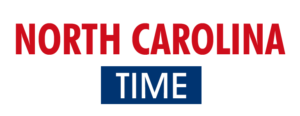Customized fixed asset labels are essential tools for organizations seeking efficient asset management and monitoring. These labels are specifically designed with identifiers for each asset, simplifying the task of identifying and locating equipment, furniture, or machinery within a facility.
In this article, we’ll explore the various types of customized fixed asset labels available in the market, highlighting their characteristics, advantages, and contributions to streamlining asset-tracking procedures.
Types of Customized Fixed Asset Labels:
Barcode Labels
Barcode labels are widely used across different sectors. These labels feature barcodes containing information about the asset, such as its serial number or location. By utilizing barcode labels, companies can leverage barcode scanning technology for accurate asset identification, thereby minimizing errors and expediting inventory audits and tracking tasks.
QR Code Labels
Similar to barcode labels, QR code labels utilize quick response (QR) codes, which can store more than just barcode information. QR codes can contain text content, URLs, and even contact details. Integrating QR codes into asset labels enhances tracking capabilities, allowing users to access details or maintenance history through a simple scan using a smartphone or dedicated scanner.
RFID Tags
Radio frequency identification (RFID) tags offer an alternative solution for customized fixed asset labeling. These tags utilize radio waves to retrieve and store data without the need for scanning. RFID tags enable simultaneous scanning of assets, improving the efficiency and accuracy of asset audits. Additionally, RFID tags are more resilient to harsh conditions compared to standard labels, eliminating the need for manual data input.
Durable Labels
Certain industries require fixed asset labels capable of withstanding extreme environments, such as high temperatures or exposure to chemicals. Durable labels are tailored for such scenarios, ensuring that vital information remains legible over time. These labels utilize materials resistant to abrasion, water damage, UV rays, and other adverse elements, making them suitable for industries like construction, manufacturing, and oil and gas.
Tamper-Proof Stickers
To enhance asset security, tamper-proof stickers provide an additional layer of protection against unauthorized access or tampering. These stickers reveal evidence if someone attempts to remove or tamper with them. Examples include destructible vinyl labels that break upon removal or void labels that display a “VOID” imprint when peeled off. Tamper-proof stickers help prevent theft and maintain the integrity of assets.
Advantages of Personalized Fixed Asset Labels:
Enhanced Asset Tracking
Personalized fixed asset labels significantly enhance asset-tracking processes, reducing losses from theft or misplacement. They enable precise monitoring and facilitate maintenance planning.
Time-Saving Efficiency
These labels simplify time-consuming activities like inventory audits and equipment checkouts/check-ins by streamlining identification and data-gathering procedures. Incorporating scanning technology minimizes errors and accelerates tracking tasks.
Improved Decision Making
Access to detailed asset information empowers businesses to make informed decisions regarding maintenance, repairs, replacements, or new investments. Personalized fixed asset labeling systems enable efficient resource management.
Cost Efficiency
Utilizing custom fixed asset labels aids in tracking assets, reducing losses and facilitating maintenance planning, thereby saving costs associated with failures or premature replacements.
In Summary
Custom fixed asset labels are indispensable for enhancing asset tracking and management processes. With a variety of label options available, businesses can select labels based on factors like durability, security features, and compatibility with existing systems. Investing in custom labels enables companies to streamline operations, minimize losses, and optimize resource utilization in the long run.





